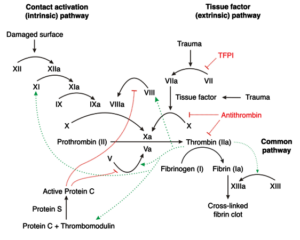“I believe a leaf of grass is no less than the journey-work of the stars.” -Walt Whitman
“You are closer to me than I am to myself.” – Augustine
BACK FROM THE EDGE
Roscoe Worth has been swigging gallons of water every day, driven by his underlying mental illness. He has waterlogged his brain. The plunging salt levels in his body have caused a seizure and prolonged stupor. His life hangs in the balance.
Yet precisely because he is now unconscious and no longer able to drink, his body’s own corrective measures are starting to raise his sodium levels. But the situation is delicate. If the sodium rises too rapidly – and it is! – the fluctuation could dissolve his brain, paralyzing or killing him. He is on a razor’s edge, and we his caregivers are tensely balancing there with him.
Painstakingly we give IV fluids with precise amounts of sodium, actually trying to slow the rate of correction. The levels creep up. Gradually Roscoe wakes up. When he starts to move his limbs, we breathe a sigh of gratitude. He is not paralyzed. And we realize he is returning to normal when he asks for water!
Getting him to drink less may be unrealistic, but by offering him sports drinks, instead of free water, we may be able to maintain a reasonable sodium level in the future.
FINELY TUNED
My first year of medical school focused on the normal function of the human body. In contrast, the second year was more devoted to studying the abnormal. One thing that became quickly apparent is that much of what we consider to be disease is simply an imbalance.
For instance, a patient with an over-active thyroid gland typically experiences:
- weight loss (despite a voracious appetite),
- sweatiness,
- tremors,
- diarrhea, and
- heat intolerance. She drives her family crazy, turning down the thermostat!
The thyroid is the pacemaker of her metabolism, so everything seems turned up faster. Walk into her frigid room and you see kinetic energy: a thin, wide-eyed, agitated sufferer.

In contrast, the hypothyroid (under-active) patient complains of:
- fatigue,
- weight gain (despite a poor appetite),
- constipation, and
- cold intolerance. She also drives her family crazy, turning up the thermostat!
Walk into her sweltering room and you see a lethargic, heavy-set woman, sitting inertly with soft speech and drooping eyes, wrapped in thick clothing.
SLICED BY THE RAZOR
In some cases, the line between normal and abnormal is breathtakingly thin. Sitting behind your stomach in the back of your upper abdomen is your pancreas, a veritable powder keg of caustic enzymes that are normally reserved for digesting food. When you eat a meal, especially a fatty meal, the pancreas responds by secreting enzymes into the first part of your small intestine to break down the nutrients.
But let your pancreas become severely inflamed from excessive alcohol intake or an obstructing gallstone, and the irritated gland can spill its toxic contents. These potent chemicals may then act on your own tissues, starting with the pancreas itself, which “auto-digests,” then sometimes on to distant organs like the lungs. In extreme cases this can prove rapidly fatal as a tide of enzymatic destruction overwhelms remote organs.
Consider the blood and its clotting. What a seesaw! When you cut yourself, you typically bleed for only a few minutes. Why is that? A plug of platelets soon seals the breach in your blood vessel, followed by the actual coagulation of the blood that dams the flow.
But suppose the ability to clot gets out of balance. If your blood clots while it is circulating, the clot will obstruct flow downstream, leading within minutes to a massive heart attack or stroke.
Both the proteins that form clots and those that dissolve clots are dancing with one another in a delicate choreography that manages to keep you from hemorrhaging to death, while also preventing the devastating effects of clots. If either partner missteps, the result is catastrophe.
Below is a diagram of the coagulation cascade, the complex dance card of your clotting system.

As a student I watched in horror as a patient recovering uneventfully from pneumonia dropped dead, because a clot that had formed in her leg suddenly migrated through the circulation to her lung. Hours later, we were struggling to save another patient, who was bleeding from seemingly every orifice because his diseased liver was not synthesizing enough clotting proteins. Both patients died because of a slight swing in the pendulum between clotting and bleeding.
GETTING PERSONAL
Normal physiology may appear to be static, but it is really a homeostasis, a balance between opposing forces. You owe your health to a lifelong tug of war between bodily systems, tightly regulated by feedback. For us to live, this match must always end in a tie. This beautiful, tenuous equilibrium is sustained by a meticulous designer. He reveals his genius in our resiliency, as well as our fragility.
Is it possible that just as we construed God as “too little,” we might also mistakenly view him at times as “too big” – too distant or important to delve into the nitty gritty of our own individual joys and tribulations? Do we fail to pray because we believe deep down that God is too busy to notice?
The Bible speaks repeatedly of God dwelling in our hearts. Imagine all the tiny spaces in your own heart – all the hidden nooks of dreams. Picture the deep recesses within your soul, where strong yearnings you barely understand or even recognize reside. The immense God who spins cluster of galaxies in his fingers is also the microscopic God who winds each coil of your DNA. Now imagine – no, beseech him! – that he fill up every tiny space within you! Incredibly, that is his own desire.
So that “Christ may dwell in your hearts through faith—that you, being rooted and grounded in love, may have strength to comprehend with all the saints what is the breadth and length and height and depth, and to know the love of Christ that surpasses knowledge.” (Ephesians 3:17-19)
Dr. Bill Maynard
